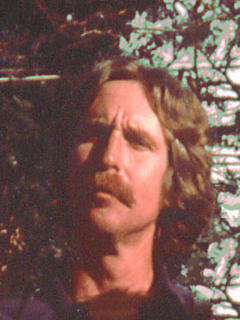By Daniel B. Wood Staff writer / March 5, 2010
Burbank, California
Waiting for her bags here at the Bob Hope International Airport baggage claim, Doris Kern is easily engaged on the subject of using body scanners to screen airline passengers.
“I will feel safer when more places use them,” says the mother of three. “But given the option, I’d rather take a pat down."
The TSA (Transportation Security Administration) announced Friday that nine more US airports will receive the machines in the next week as the Obama administration heightens security efforts in the wake of the attempted bombing of a Northwest Airlines flight on Christmas day ... by a man carrying explosives in his underpants.
Three machines will go online Monday at Boston's Logan International Airport, to be followed by units at Fort Lauderdale, Fla.; San Jose, Calif.; Columbus, Ohio; San Diego; Charlotte, N.C.; Cincinnati; Los Angeles; Oakland, Calif.; and Kansas City, according to the TSA's Lee Kair.
Experts say – and polls concur – that the rollout of body scanners at US airport security checkpoints will not be accompanied by the strong public resistance met in Europe. A USA TODAY/Gallup Poll released in January found that 78 percent of respondents said they approved of using the scanners, and 67 percent said they are comfortable being examined by one.
Some analysts, however, do agree with European aviation-security experts who remain unconvinced of the cost benefits.
“I think the magnitude with which they are deploying them is overkill,” says Bruce McIndoe, President of iJET Intelligent Risk Systems, a global risk and security company based in Annapolis, Maryland. The cost of the machines is high, and they have to be operated, calibrated, and maintained – which is very expensive on top of that purchase price, he says.
And others say the cost should be measured not only in dollars spent, but in time delays for passengers.
“This is not going to replace metal detectors anytime soon,” says Sam Kamin, an associate professor of criminal law at the University of Denver, who has written about high-tech scanning and detection at airports and the possible constitutional implications. “If this did, it would take you four hours to get on your flight, and it would cripple air travel," he says.
Passengers will have the option of accepting or declining a body scan. Those who do – and pass – will not have to pass through a metal detector or other security equipment. Those who decline must walk through a metal detector and submit to a pat down.
The scanners, which allow the TSA to see beneath a passenger's clothing to search for explosives and other contraband, have drawn fire from civil libertarians. The American Civil Liberties Union has denounced the use of them as a "virtual strip search."
The TSA counters that the images from the scanners are seen only by a security officer in a remote viewing room, that passengers' faces will be blurred, and that the images aren't stored.
Information from Associated Press was used in this report.
